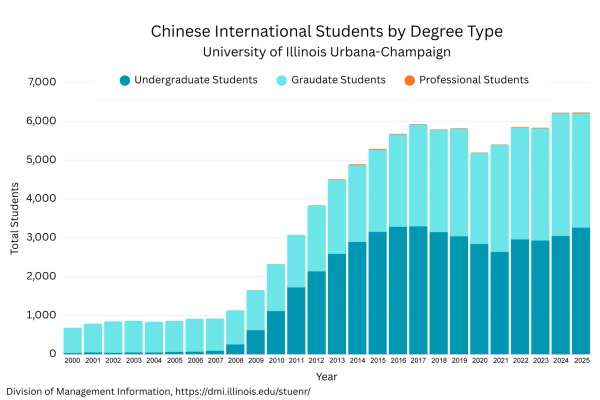‘Fat Shaming’ mean, ineffective

Sep 10, 2015
Having been an opinions columnist for several semesters, I have come to learn that the most effective way to convey an opinion is through discussion and debate, not through shock value like some may believe. This lesson in persuasion is something that YouTube comedian Nicole Arbour could learn from.
This week, Arbour garnered a slew of negative attention on social media when she posted a video called “Dear Fat People,” where she admonishes what she sees as a culture of fat acceptance.
“Are you gonna tell the doctor that they’re being mean and fat shaming you when they say you have f-ing heart disease?”
“Shame people who have bad habits until they stop.”
“If we offend you so much that you lose weight I’m OK with that. I’ll sleep at night.”
Get The Daily Illini in your inbox!
“It just means you’re too fat and you should stop eating.”
These are only a few of the inflammatory comments featured in Arbour’s highly controversial video. She claimed that her video and its message were aimed at helping obese individuals, but many remained unconvinced. The video was met with harsh criticism and claims that her words are harmful to individuals with body issues. YouTube administrators even temporarily suspended Arbour’s channel due to the nature of the video’s message.
Arbour told Buzzfeed that the responses were just “ridiculous outrage to a comedy video that has a bit too much truth in the jokes for (viewer’s) personal taste.”
In my opinion, there is not a fine line between honest and offensive. This isn’t to say that comedy cannot mention relevant social topics like obesity. Often the most effective comedy references current issues and brings to light controversial matters facing society.
But that’s not what this video was. It feels wrong to call it “comedy.”
An article titled “‘Fat Shaming’ actually increases the risk of becoming or staying obese, new study says” on nbcnews.com referred to a study conducted by Florida State University College of Medicine. According to the study, “stigmatizing overweight people leads to psychological factors that are likely to contribute to weight gain,” for example, depression or binge eating.
The outrage over Arbour’s video is not because she speaks the truth without mincing her words. It’s because she is wrong; You can’t shame others into being skinny, and being offensive will likely get you nowhere.
Her failure to successfully convince viewers that she’s advocating for a greater good speaks to the misconception she has on how to construct an argument and, frankly, how to be funny.
I initially couldn’t stand to sit through the six minute rant because the sound of her high, shrill voice and pompous demeanor came off as incredibly annoying and arrogant. Thus, it comes as no surprise that her greatest glimpse at popularity hinges on shock value and controversy.
An important detail to point out here is that YouTube should not have censored Arbour by shutting down her channel, even if temporarily. Her video did not violate the terms and conditions of the site and she had every freedom to use her First Amendment rights to speak her mind.
Instead of trying to shut down Arbour’s channel and silence her, Arbour and her viewers should take this video as a great example of how not to present an argument and should see the video as an example of insensitivity and offensiveness.
When you dig deep enough into Arbour’s video, an underlying message advocating for a healthy lifestyle and maintaining a healthy weight is an innately good message. Unfortunately, any chance Arbour had at furthering this message is clouded by her cruel metaphors and unsubstantiated claims of how to deal with obesity.
Stephanie is a senior in LAS.
[email protected]





